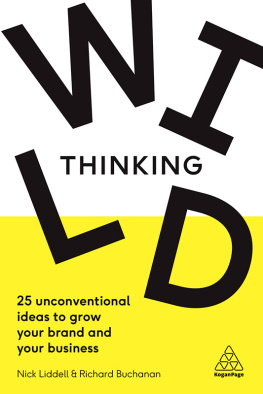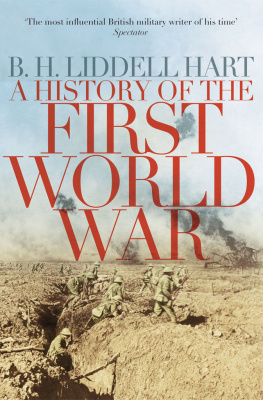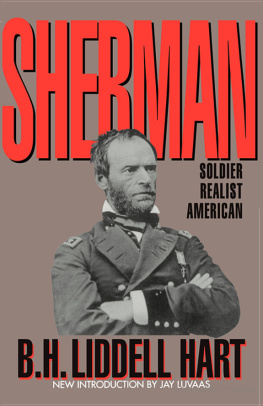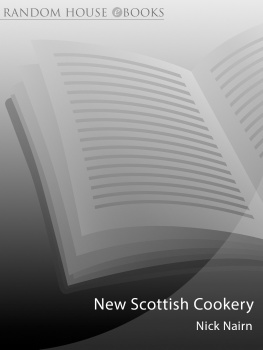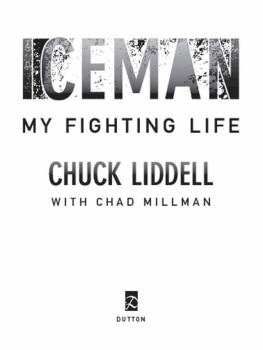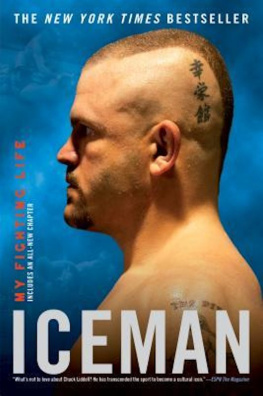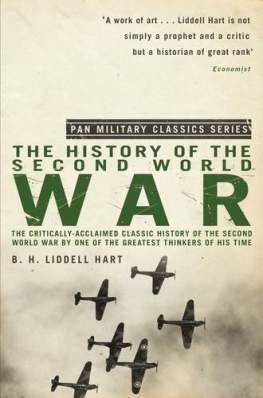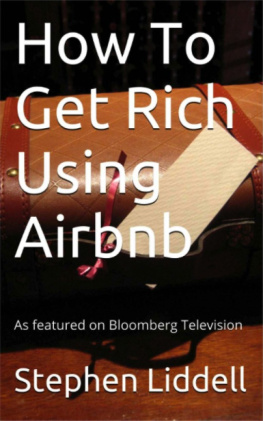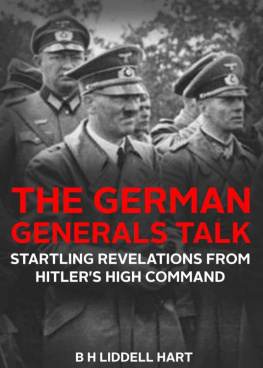Nick Liddell - Wild Thinking
Here you can read online Nick Liddell - Wild Thinking full text of the book (entire story) in english for free. Download pdf and epub, get meaning, cover and reviews about this ebook. year: 2019, publisher: Kogan Page, genre: Politics. Description of the work, (preface) as well as reviews are available. Best literature library LitArk.com created for fans of good reading and offers a wide selection of genres:
Romance novel
Science fiction
Adventure
Detective
Science
History
Home and family
Prose
Art
Politics
Computer
Non-fiction
Religion
Business
Children
Humor
Choose a favorite category and find really read worthwhile books. Enjoy immersion in the world of imagination, feel the emotions of the characters or learn something new for yourself, make an fascinating discovery.
- Book:Wild Thinking
- Author:
- Publisher:Kogan Page
- Genre:
- Year:2019
- Rating:5 / 5
- Favourites:Add to favourites
- Your mark:
- 100
- 1
- 2
- 3
- 4
- 5
Wild Thinking: summary, description and annotation
We offer to read an annotation, description, summary or preface (depends on what the author of the book "Wild Thinking" wrote himself). If you haven't found the necessary information about the book — write in the comments, we will try to find it.
Wild Thinking — read online for free the complete book (whole text) full work
Below is the text of the book, divided by pages. System saving the place of the last page read, allows you to conveniently read the book "Wild Thinking" online for free, without having to search again every time where you left off. Put a bookmark, and you can go to the page where you finished reading at any time.
Font size:
Interval:
Bookmark:

Wild Thinking
Nick Liddell & Richard Buchanan
25 unconventional ideas to grow your brand and your business

Publishers note
Every possible effort has been made to ensure that the information contained in this book is accurate at the time of going to press, and the publishers and authors cannot accept responsibility for any errors or omissions, however caused. No responsibility for loss or damage occasioned to any person acting, or refraining from action, as a result of the material in this publication can be accepted by the publisher or the authors.
First published in Great Britain and the United States in 2019 by Kogan Page Limited
Apart from any fair dealing for the purposes of research or private study, or criticism or review, as permitted under the Copyright, Designs and Patents Act 1988, this publication may only be reproduced, stored or transmitted, in any form or by any means, with the prior permission in writing of the publishers, or in the case of reprographic reproduction in accordance with the terms and licences issued by the CLA. Enquiries concerning reproduction outside these terms should be should be sent to the publishers at the undermentioned addresses:
2nd Floor, 45 Gee Street
London
EC1V 3RS
United Kingdom
122 W 27th Street
New York, NY 10001
USA
4737/23 Ansari Road
Daryaganj
New Delhi 110002
India
www.koganpage.com
The Clearing Consultancy Ltd 2019
ISBNs
Hardback 978 0 7494 9849 8
Paperback 978 0 7494 8450 7
Ebook 978 0 7494 8451 4
Typeset by Integra Software Services, PondicherryPrint production managed by Jellyfish
Printed and bound in Great Britain by CPI Group (UK) Ltd, Croydon CR0 4YY
D
To the dedicated
Which person at work is most effective at sabotaging your brand?
Maybe its you.
This book started life as a series of questions for people who are curious about ways to think differently about work. Some of those questions are deliberately provocative like the one above. Some are intended to encourage personal reflection, while others are designed to be discussed in teams. All of the questions were developed with our friends at The School of Life, a global organization of philosophers, psychologists, teachers and therapists devoted to developing emotional intelligence. So there is some method behind the madness.
Weve cherry-picked 25 questions that explore different aspects of life and work and have written a chapter around each question: why its relevant, how other people tend to think about the subject, and what we think of it ourselves. Each chapter also contains an interview with an inspiring person weve come across during the course of our work. Were tremendously privileged to have worked with some of the most interesting charities, cultural organizations and businesses in the world and were grateful for the honesty and generosity of everybody whos agreed to be a part of this book. Each chapter ends with a Clear Defendable Territory a single-minded point of view, accompanied by an illustration weve designed to bring the thinking in each chapter to life.
Theres no right or wrong way to read this book. We suspect the majority of people who pick it up will flick to the illustrations at the end of each chapter. If theres a chapter title or an illustration or a Clear Defendable Territory that particularly grabs you, then thats a pretty decent place to start. You may decide to ignore our points of view altogether and focus instead on the interviewees thoughts. Thats also a great way to begin. Weve done our best to find a breadth of people to include in this book so whether your interest is in the not-for-profit sector, or the arts, or sport, or entrepreneurship, there should be someone in here to draw your attention.
And if youre not interested in the illustrations or interviewees or Clear Defendable Territories, then take a moment to contemplate the opening three words of this introduction.
A conversation with John Allert
Chief Marketing Officer
McLaren
Marty Neumeier is a big fan of picking fights.Zag is his recipe book for making brands radically different and in it he encourages his reader to take on the biggest, most successful competitor you can find. Its not about kicking sand in the big guys face its about clarifying who you are by defining who you hate. As Neumeier puts it, David was nothing without Goliath.
We love an underdog story: Virgin outmanoeuvring British Airways; Ben & Jerrys eating into Hagen Dazs market share; Netflix busting Blockbuster. But as compelling as these stories are, theres a big problem with the underdog narrative in business: every David ultimately wants to become a Goliath, and every Goliath started life as a David. Virgin, Amazon, Ben & Jerrys and Netflix were all underdogs within recent memory. Now they are the overlords of their categories. They may retain the challenger spirit of their youth, but they carry bazookas instead of slingshots.
Apple is the epitome of the underdog-turned-overlord. No matter how big it gets, the spirit of Steve Jobs seems to have instilled in the business a challenger mentality that inspires the people who work at Apple to ever greater heights of innovation and profitability. This mentality is most visible in the bitter corporate feuds Apple has engaged in over the years. In 2010, Steve Jobs promised a thermonuclear response to perceived intellectual property infringement by Googles Android operating system. It seems that at every point in its evolution, Apple has had a nemesis of some sort to rail against. The now-iconic 1984 Super Bowl commercial was clearly aimed at annoying IBM, as was Apples Think Different mantra IBM had been using the Think slogan since 1911 and filed the word as a trademark in 1935 (14 years before registering IBM as a trademark). As IBM moved into consulting and B2B applications, Apple shifted its attention to taking on Microsoft and ran a series of Mac v PC campaigns. Google is the latest business worthy of Apples unique brand of thermonuclear fire and fury.
In these rivalries, Apple has clearly positioned itself in the role of hero. And every hero needs a villain. There is a gathering weight of evidence that suggests picking the right villain can make a business more compelling to its customers. A 2012 study of Apple Mac users found that the more Apple users identify with the brand, the greater the joy they feel at reports of Microsofts misfortunes. Rivalry and conflict clearly have the potential to thrill customers, but these rivalries can also be divisive and dehumanizing.
What about the impact of rivalry within a business? Academic research suggests that finding a villain to vanquish is a potentially powerful motivational tool for managers. A 2010 study into the psychology of competition concluded that rivalries between firms means they are less likely to fall prey to complacency. However, the authors of the study also point out theres a downside to this type of motivation: it can lead management to prioritize harming competitors over creating shareholder or customer value, discourage management from engaging in cross-sector cooperation in areas such as sustainability and corporate responsibility, and it can encourage a win-at-all-costs mentality that results in unethical behaviour or excessive risk taking.
Font size:
Interval:
Bookmark:
Similar books «Wild Thinking»
Look at similar books to Wild Thinking. We have selected literature similar in name and meaning in the hope of providing readers with more options to find new, interesting, not yet read works.
Discussion, reviews of the book Wild Thinking and just readers' own opinions. Leave your comments, write what you think about the work, its meaning or the main characters. Specify what exactly you liked and what you didn't like, and why you think so.

